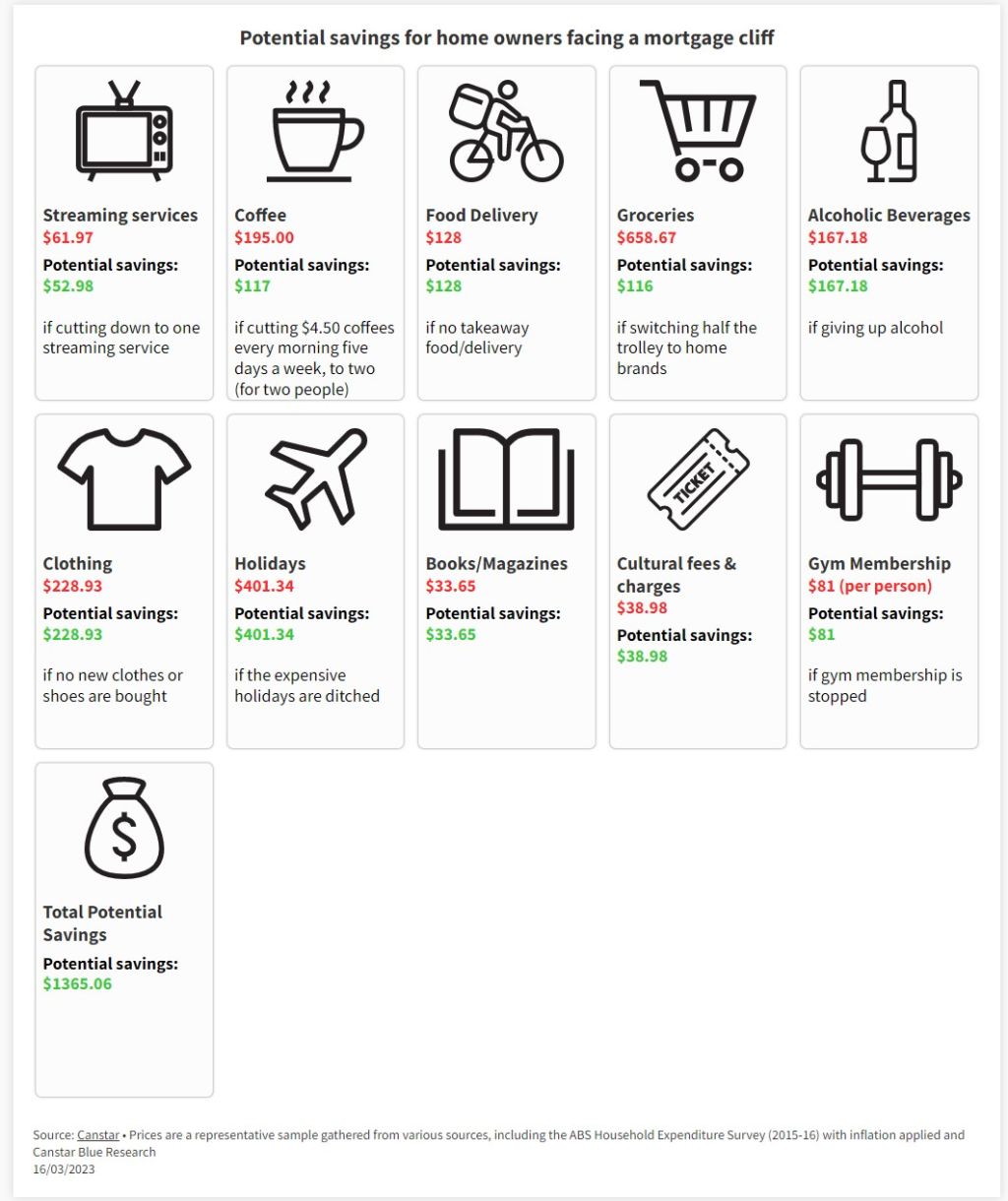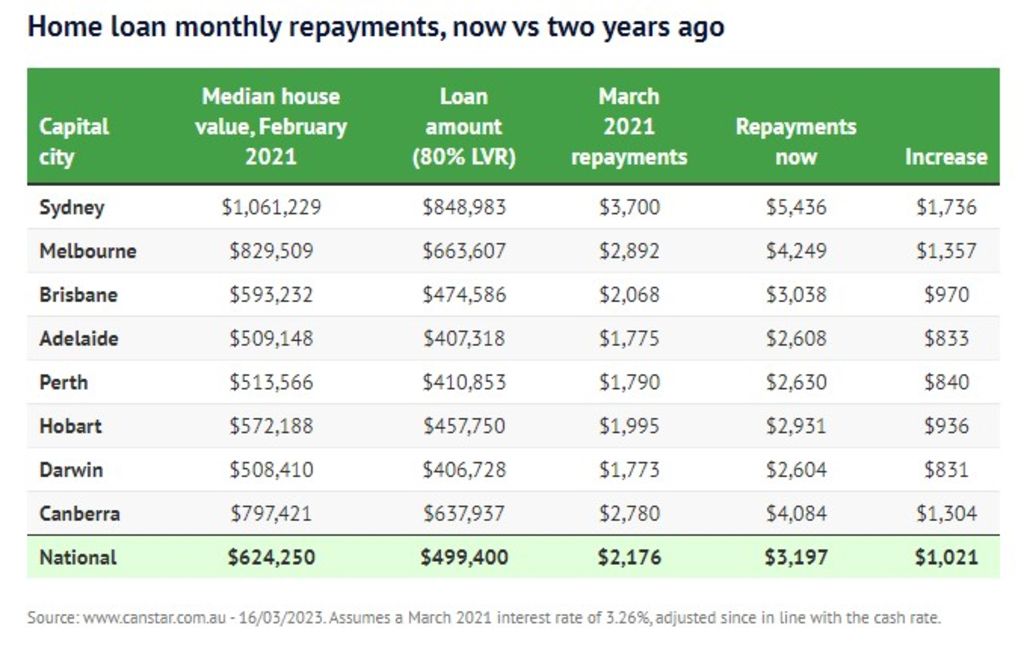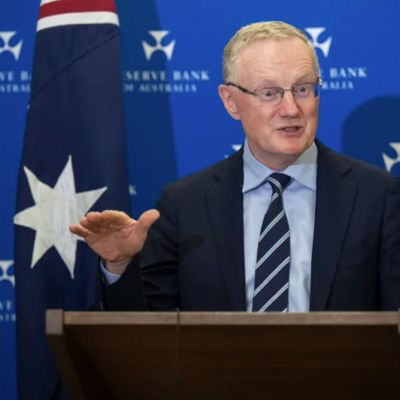Giving things ‘a haircut’: How stretched home owners could almost make ends meet
Home owners who stretched themselves to buy at the property market’s peak will be hard-pressed to cut back spending enough to meet rising mortgage repayments, despite Tuesday’s pause in the cash rate.
The extent of the belt-tightening is revealed by modelling that shows a path to saving almost $1300 a month: home owners would need to quit alcohol, takeaway meals, new clothes or shoes, the gym and their holiday plans.

They would also need to cancel most streaming services, cut back on coffee and load up on home brand groceries, the Canstar modelling showed.
As interest rates have soared, more Australians are struggling to make ends meet. Housing arrears is now the number one reason people are calling financial counselling services, overtaking credit card debt.
It comes after the Reserve Bank last year warned once the cash rate reached its current level of 3.6 per cent, some 15 per cent of borrowers would be forced to dip into their savings to afford the rise in mortgage payments.
The analysis compared figures from the ABS Household Expenditure Survey and Canstar Blue research into household spends. The grocery, alcohol, clothing and holiday figures, for example, are based on an average spend across all household sizes.
But the spending cuts may not be enough. Someone who bought the median-priced Sydney house in March 2021 would have had a $1736 jump in monthly mortgage repayments by now, assuming a 20 per cent deposit.
A Melbourne home owner would have been hit with a $1357 mortgage repayment increase over the same period.
“The numbers are just mind-boggling when you look at them,” Canstar group executive Steve Mickenbecker said.
“When there’s rising inflation, home loan repayments go up by more than any other bill – it dwarfs every bill that people spend their money on,” he said. “Giving a lot of the smaller things a haircut means owners can save enough to cover the increase in repayments.”

Home owners may be better positioned in Brisbane, where mortgage repayments rose by $970 per month on a median valued home, or Perth, where the increase is $840 per month.
AMP Capital chief economist Dr Shane Oliver said higher interest rates were hurting people struggling to make ends meet.
Those on variable interest rates were already coming to terms with higher payments, while those on fixed rates would have a much larger adjustment to make soon.
There are about 880,000 fixed interest rate loans due to roll off this year.
“We’re looking at interest rates already at levels not seen since 2012, household debt levels are higher, so home owners are facing a far more difficult environment than before,” Oliver said.
Anecdotally, banks were already starting to see discretionary spending being cut back, and holidays and new car purchases falling, he said.
“There will be a light at the end of the tunnel with rate cuts expected at the end of this year, or early next year, but there’s still a long time before that happens,” Oliver said.
Consumer Action Law Centre’s assistant director, financial counselling Claire Tacon, said the top reason people were calling financial counselling services was for housing arrears, which had jumped to the top position over credit card debt.
“This is the first time since I’ve been a financial counsellor, for eight years, that housing arrears jumped to the top reason for contacting us,” Tacon said.
Calls overall to financial counsellors soared by 29.6 per cent nationally over the six weeks to April 2, when 35,653 calls were made, Financial Counselling Australia figures show.
The biggest jump in calls was in Victoria, up by 33 per cent, after 8245 people contacted counsellors. NSW followed closely, up 28.5 per cent in NSW, when 8916 people called.
Western Australia had a jump of 27.5 per cent, with 4236 people seeking out help, while Queensland’s rose by 20.24 per cent to 7341 calls.
Tacon said the conversations with those needing advice had changed, from those who needed assistance after a change in their lives like death or divorce, to those struggling to pay the mortgage.
Financial counsellors, Tacon said, come up with strategies to help people get through tough times and encouraged people to get in touch with free financial counselling services.
“People can be scared to talk about their financial problems, but there’s always options,” she said. “The longer you leave it, the fewer options there are. Speaking up if you’re worried is the best first step.”
We recommend
We thought you might like
States
Capital Cities
Capital Cities - Rentals
Popular Areas
Allhomes
More









